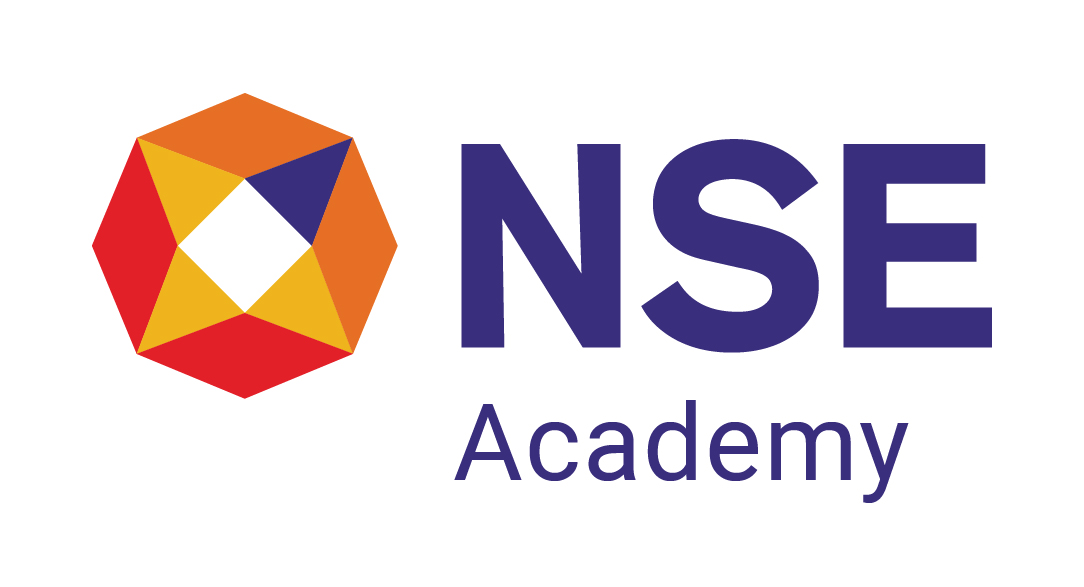Certificate in
Investment Banking (CIIB)


14 Certificates

95 Hours

1 Year Access

On-Demand

Certificate In Investment Banking (CIIB)
- Certificate in Investment Banking program is a learning pathway designed to provide practical skills and specialized knowledge required for investment banking activities and roles. Certificate in Investment Banking can be taken at your own pace from anywhere, anytime
- Learn to apply investment strategies and opportunities, acquire necessary skills for successful mergers and acquisitions, and expand your knowledge in investment banking domain.
- Candidates will be awarded the Certificate in Investment Banking program on completion of all the three essentials pack i.e., Valuation Themes Track, Key Asset Classes Themed Track and Mergers & Acquisitions Themed Track.
Ideal For
Investment Banking Professionals
Including M&A, debt and equity capital markets, and securities underwriting
Portfolio Managers or Wealth Planners Advising Institutions
For managing institutional and high-net-worth client portfolios
Analysts and Associates in the Investment Banking Field
For conducting financial analysis and modeling
M&A Advisory
Including consultants, advisors, and lawyers for mergers and acquisitions
Finance and Accounting Professionals
(For funding their business ventures) Investors (Private Equity, Venture Capital, Hedge Funds, etc.) (for investing in securities and companies)
Fund Raisers
(Public and Private Companies) (for raising equity and debt capital)
Service Providers
(Accounting Firms, Consulting Firms, Law Firms, etc.) (for providing advisory and support services to investment banking clients)
Career Changers
(looking to transition into investment banking from other fields)
MBA Graduates
(For transitioning into investment banking roles)
Undergraduates with Related Backgrounds
(Finance, Accounting, Business) (for entry-level investment banking roles)
Valuation Themed Track
OVERVIEW
The courses in this Themed Track provide you with the fundamental skills and knowledge you need to perform financial analysis and valuation. The program covers a wide range of topics, including:
- Reading and understanding key elements of financial statements and reports, such as balance sheets, income statements, and cash flow statements.
- Applying basic financial and accounting principles to budget preparation and analysis
- Comparing companies financially, understanding cash flow, and grasping basic profitability and risk analysis concepts
- Understanding the time value of money, basic statistics of sampling and estimation, hypothesis testing, probability distribution, correlation and regression techniques, and time-series analysis.
- Applying time value of money principles, the capital budgeting framework, and analysis of financing options when making financial decisions.
LEARNING OUTCOME
- Perform fundamental financial analysis and valuation.
- Make informed financial decisions.
- Communicate financial information effectively to stakeholders.
- Module 1: Overview of Investment Banking.
- Module 2: Definition and role in the financial industry.
- Module 3: Key functions and services provided by investment banks Investment Banking Operations.
- Module 4: Introduction to investment banking operations.
- Module 5: Importance of efficient operations in investment banking.
- Module 1: Introduction to Corporate Finance.
- Module 2: The Time Value of Money
- Module 3: More Time Value Applications
- Module 4: Capital Budgeting
- Module 5: Factors Affecting Financial Decisions.
- Module 1: Introduction to Financial Statements.
- Module 2: Risk Analysis Using Ratios.
- Module 3: The Impact of Accounting Principles.
- Module 4: Valuation Basics.
- Module 1: Introduction to Business Valuation.
- Module 2: The Foundations of Free Cash Flows
- Module 3: The Weighted Average Cost of Capital
- Module 4: Terminal Value.
- Module 5: The DCF Approach to Business Valuation
- Module 6: The Limitations of the DCF Approach
- Module 1: Introduction to the Securities Industry .
- Module 2: Introduction to Equity Securities.
- Module 3: Introduction to Debt Securities.
- Module 4: Trading Securities in the Secondary Markets.
- Module 5: Processing Securities Transactions.
KEY ASSET CLASSES Themed Track
OVERVIEW
The courses in this Themed Track provide you with the knowledge and skills needed to make informed investment decisions and succeed in the investment world. The courses will help you:
- Develop a solid foundation in the investment world and the securities industry.
- Understand OTC transactions, margins, clearing, and settlements.
- Learn about credit risk, bond-rating systems, bond trading terminology, techniques, and strategies.
- Learn about the yield curve, the factors that affect it, and the role of the Federal Reserve system and its impact on bonds.
- Learn about various hedge fund strategies, hedge fund operations, and considerations for hedge fund investors.
- Gain insight into the relevance of the portfolio management process for fixed income, equity, and money market securities.
LEARNING OUTCOME
- Analyze and evaluate investment options critically. .
- Make informed decisions based on understanding of the market and investment risks.
- Effectively communicate your investment ideas and strategies to clients, colleagues, and other stakeholders.
- Develop and implement effective investment plans that align with your clients' financial goals.
- Module 1: Introduction to Securities Industry.
- Module 2: Introduction to Debt Securities
- Module 3: Introduction to Equity Securities
- Module 4: Trading Securities in Secondary Markets
- Module 5: Processing Securities Transaction
- Module 1: Common Stock
- Module 2: Preferred Stocks
- Module 3: Equity-Linked Issues
- Module 4: Indexes
- Module 1: Bonds and their Features.
- Module 2: Fixed Income Markets.
- Module 3: Bond Risks.
- Module 1: Introduction to Derivatives .
- Module 2: Futures and Forwards
- Module 3: Swaps
- Module 4: Options.
- Module 1: Understanding Mutual Funds.
- Module 2: Introduction to Various Mutual Fund Products.
- Module 3: Selecting the Right Mutual Fund
- Module 4: Operation of A Mutual Fund Company.
Mergers & Acquisitions Themed Track
OVERVIEW
With its practical and industry-focused curriculum, the Mergers & Acquisitions (M&A) Themed Track courses prepare you for the challenges and opportunities of the M&A industry and enhance your professional development and career prospects. M&A Essentials courses are designed to help you
- Develop a fundamental understanding of how to value both public and private companies.
- Gain a comprehensive overview of the major facets of the Mergers & Acquisitions industry, from deal inception to post-merger integration, and the critical skills required to execute successful transactions.
- Acquire the skills to structure a deal from multiple perspectives, including common and unusual transactions, and an understanding of practical transaction structures for M&A and their financial, tax, legal, and accounting implications.
- Deepen your understanding of cash flow concepts to analyse corporate performance and evaluate analysis, enabling you to make better capital budgeting and acquisition decisions.
LEARNING OUTCOME
- Enabling you to make informed investment decisions and negotiate effectively in the M&A industry. .
- Develop the skills to value public and private companies and make informed investment decisions.
- Gain an overview of the major facets of the Mergers & Acquisitions industry and the skills required to execute successful transactions.
- Enhance your understanding of the M&A industry and the critical skills required to succeed.
- Apply your knowledge to real-world M&A scenarios, improving your professional development and career prospects in the industry.
- Module 1: Introduction to the Hedge Fund Industry.
- Module 2: How a Hedge Fund Works.
- Module 3: Hedge Fund Strategies.
- Module 4: Issues for Hedge Fund Investors.
- Module 5: Equity Investment Vehicles.
- Module 1: Overview of Mergers and Acquisitions.
- Module 2: Key Drivers of a Successful Acquisition.
- Module 3: Attractiveness of Target Companies.
- Module 4: Acquisition Structure.
- Module 5: Sequence of Events
- Module 6: Documentation and Agreements
- Module 1: Managing for Value Creation
- Module 2: How Does the Integration
- Process Affect Value Creation
- Module 3: M&A Valuation
- Module 4: Financing the Acquisition
- Module 5: Anti-takeover Mechanisms
- Module 6: Anti-trust Policies
- Module 1: Legal structures
- Module 2: Tax structures
- Module 3: Accounting
- Module 4: Letter of Intent
- Module 5: Seller paper, earn outs, hope certificates
- Module 6: Special cases
- Module 7: Tax loss mergers
- Module 8: Break-up/sum-of-the-parts/split-offs
- Module 9: LBOs
- Module 10: Roll-ups, consolidation
About New York Institute of Finance
The New York Institute of Finance (“NYIF”), founded in 1922 by the New York Stock Exchange (NYSE), is one of the world’s first organizations dedicated to training business and finance professionals. NYIF has more than 800 financial and business courses and over 50 professional certificates, covering most financial areas such as investment banking, securities, funds, insurance, derivatives, trusts, asset management, wealth management, fintech, DeFi, sustainable, ESG and green finance etc. NYIF offers products and services including classroom courses, open public courses, digital courses, overseas training, youth financial education and customized consulting services. NYIF alumni now comprise over 1.3 million elite finance professionals, in over 120 countries working in major financial institutions and business corporations worldwide.

About NSE Academy

NSE Academy Limited is a wholly owned subsidiary of the National Stock Exchange of India Limited (NSE). NSE Academy Limited enables the next generation of BFSI and FinTech professionals with industry-aligned skills – through capacity building programs and certification courses, powered by an online examination and certification system. The courses are well-researched and carefully crafted with inputs from the industry professional. NSE Academy Limited works closely with reputed universities and institutions across India in building a competent workforce for the future of BFSI and FinTech. NSE Academy Limited also promotes financial literacy as an essential life skill among youngsters – a contribution towards financial inclusion and wellbeing. For more information visit.
For More Information register and receive a call from NAL Learning Consultant or Connect directly on
Enquire For Scholarship
Disclaimer
- The information in this document can be used only by NSE Academy Ltd. It may not be reproduced in whole, or in part, nor may any of the information contained therein be disclosed without the prior consent of the authorized representatives of "NSE Academy Ltd." except within the organization.
- Any form of reproduction, dissemination, copying, disclosure, modification, distribution and or publication of this material is strictly prohibited
- The International Certificates are administered by the respective credentialing bodies viz., NYIF. The participants need to complete certificate criteria to be eligible for the certificate
- The Course Content/Outline mentioned here in is indicative and may be modified by NSE Academy in the best interest of the participants
- Fees paid is non-refundable and non-transferable.
- NYIF & NAL reserves the right to cancel the batch. In case of cancellation, candidates will have the right to either defer their admission to another coming session or receive full refund.
